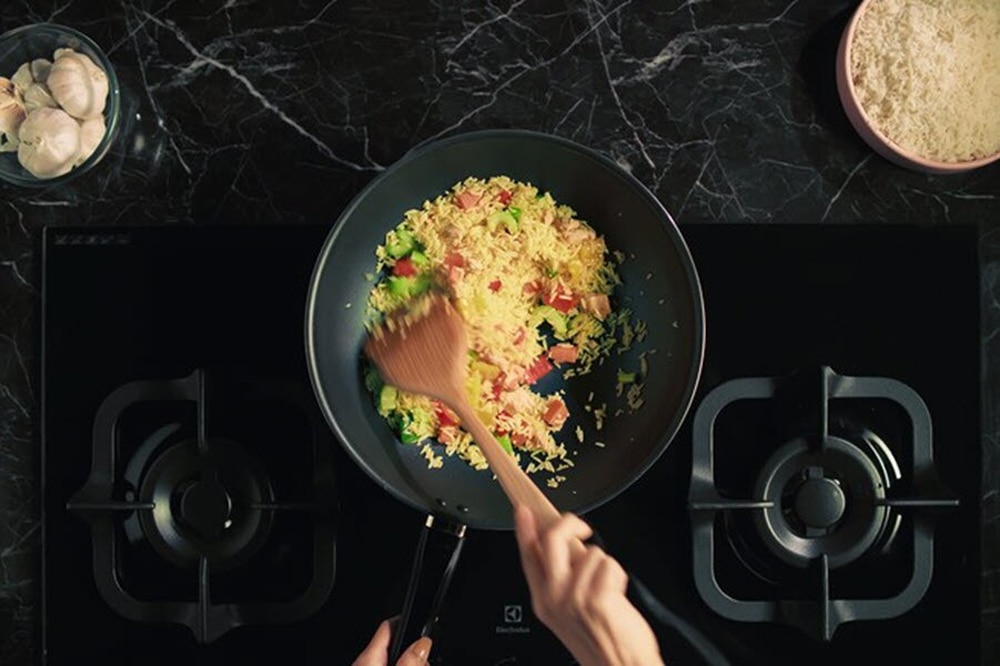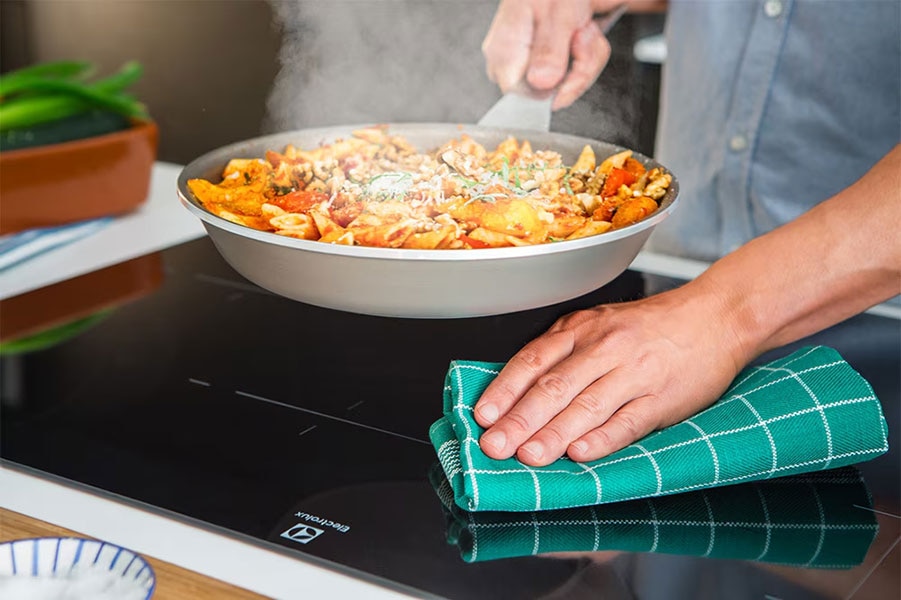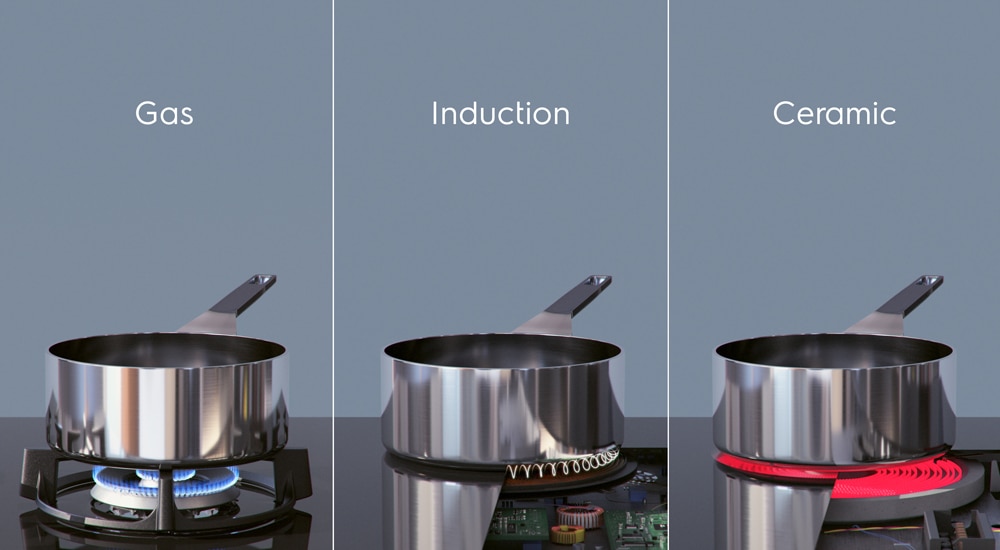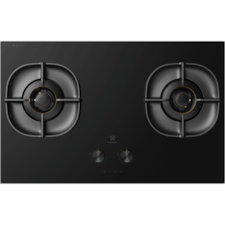When it comes to choosing the right stove for your kitchen, the age-old debate often boils down to electric versus gas stoves. Each comes with its unique set of advantages and potential drawbacks, making the choice slightly challenging.
We’ll be examining the differences between gas and electric stoves to help you choose the best option for your cooking needs and lifestyle. Whether you're an experienced chef or a home cook, knowing the key differences between these stoves can greatly affect your cooking experience.
Gas stoves
Gas stoves are favoured in kitchens for their precise heat control and consistent performance. They use natural gas or propane for direct flame cooking, offering the traditional experience of cooking over an open flame.

Gas stoves come in various styles including freestanding and built-in stoves, each with unique installation and design benefits.
|
Advantages of gas stoves |
Disadvantages of gas stoves |
|
Immediate temperature control Efficient heat distribution Cost-effective fuel |
Potential gas leaks Requires a gas line installation Not as easy to clean as electric stoves |
Electric stoves
On the other hand, electric stoves use electric power to heat elements or coils which, in turn, heat the cookware. They offer a sleek design and are generally easier to clean, making them a popular choice for modern and minimalist kitchen setups. 
The stoves we offer come in radiant and induction types, each offering distinct advantages and aesthetics.
|
Advantages of electric stoves |
Disadvantages of electric stoves |
|
Consistent heating Easy to clean No need for a gas line installation |
Slower temperature adjustment Higher energy costs May not distribute heat as evenly as gas stoves |
Which stove is best for you?

Choosing between a gas and electric stove often comes down to your individual cooking habits, the setup of your kitchen, and your budget constraints. Let’s break down these factors:
Cooking preferences
If you enjoy high-heat cooking, a gas stove and its immediate heat control would suit you.
Here’s a list of cooking techniques appropriate for each type of stove:
|
Gas stoves |
Electric stoves |
|
Searing Stir-frying Flambéing Charring |
Simmering Baking (with stove top bakeware) Boiling |
Kitchen setup
The existing setup of your kitchen can significantly influence your choice. For instance, if there's already a gas line installed, a gas stove might be a more straightforward choice. Alternatively, if your kitchen sports a modern aesthetic, the sleek design of an electric stove could complement it well.
Budget
Initial costs and ongoing expenses are crucial factors. Gas stoves might have a higher installation cost if there's no existing gas line, but fuel is often cheaper than electricity. Electric stoves might save you on upfront costs but could lead to higher utility bills over time.
Maintenance and cleaning
Gas stoves, with their grates and burners, can be a bit more challenging to clean compared to the smooth surface of electric stoves. However, repairing a gas stove might be simpler and cheaper than fixing a complex electric induction or ceramic stove.
Read more: How to clean your gas stove thoroughly
Energy efficiency

Electric stoves, especially induction cooktops, are known for their energy efficiency as they lose less heat during cooking. Gas stoves, while efficient in heating, tend to lose more heat to the surrounding, which might warm up your kitchen—a factor worth considering in warm climates.
Safety
Gas stoves pose a risk of gas leaks, which could be dangerous. Electric stoves are generally considered safer as there's no open flame, but they stay hot for a while after being turned off, posing a burn risk.
Your personal preferences, combined with the practical aspects of your living situation, will guide you towards making a choice that enhances your culinary journey and complements your lifestyle.
Embrace a superior cooking experience with Electrolux stoves & hobs
Experience superior cooking with Electrolux stoves and hobs, offering a blend of quality and innovation for the modern kitchen. Here's what makes them a standout choice:
High-quality glass cooking surfaces
Electrolux stoves come with top-tier glass surfaces that are pleasing to the eye and easy to clean, minimising the risk of scratches for long-term use.
Sensitive touch controls
Move past the hassle of knobs with Electrolux's intuitive touch controls, allowing precise and easy adjustment to your cooking settings.
Induction technology
Electrolux cooktops employ advanced induction technology, heating only the area directly beneath the pan while keeping the surrounding surface cool for safety and easier cleaning.
Energy efficiency
With today's focus on energy conservation, Electrolux built-in induction hobs are faster and more energy-efficient, letting you prepare your favourite dishes quickly while using less energy.
Electrolux aims to make sustainable eating the preferred choice, by making alternative cooking methods easier and developing more technology that can minimise food waste. Understand more about our commitment to the environment in these videos:


Explore our high-quality gas stoves:
-
- StepFlame settings deliver precise heat control.
- FlameShield improves efficiency and results.
- High power burner is ideal for stir-frying.
-
- FlameShield improves efficiency and results.
- High power burner is ideal for stir-frying.
- Flame failure cuts off gas supply for your safety.
-
- Blue flame burns efficiently to lower energy cost.
- High power burner is ideal for stir-frying.
- Durable, easy-to-clean stainless steel surface.
Check out our electric stoves:
-
- Power management prevents electrical outages.
- Touch controls deliver more professional results.
- Residual heat indicator helps to avoid accidents.
-
- Power management prevents electrical outages.
- Residual heat indicator helps to avoid accidents.
- Smooth glass surface makes cleaning easy.
-
- Use Auto heat-up to get cooking faster.
- AutoOff shuts off the hob if something is amiss.
- Pause your cooking at the touch of a button.
Frequently asked questions about electric and gas stoves
-
How do I maintain the longevity of my stove?
Regular cleaning and following the manufacturer's guidelines can help maintain the longevity of both gas and electric stoves.
-
Can I install my stove myself?
It's advisable to have a professional install your stove to ensure safety and proper functionality.
-
What cookware is suitable for electric stoves?
Flat-bottomed cookware is ideal for electric stoves to ensure proper contact with the heating element.
-
Are there any safety features I should look for?
Look for features like automatic shut-off, child lock, and hot surface indicators for enhanced safety.





